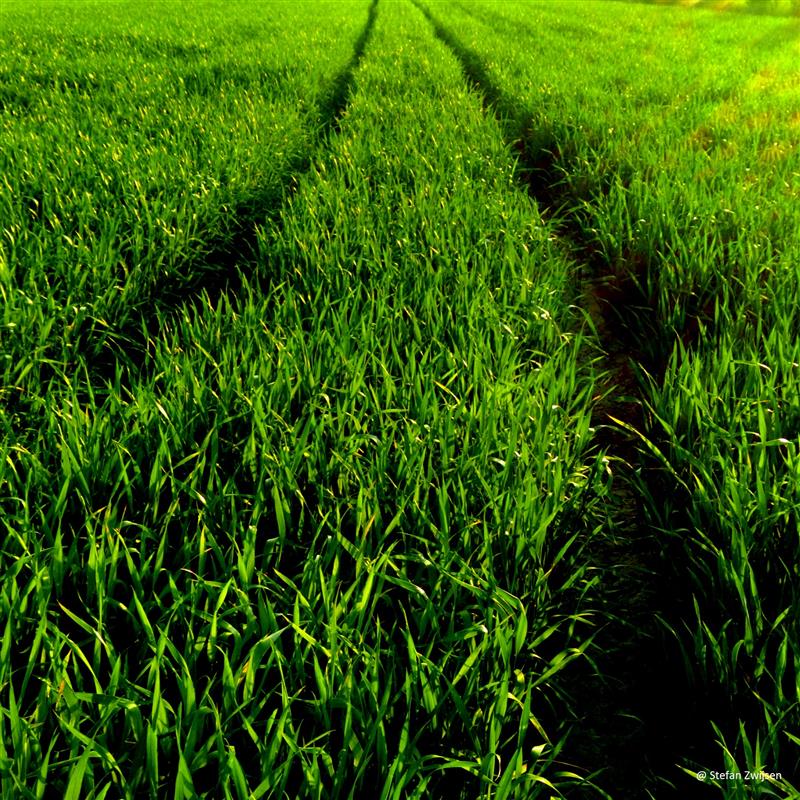In het Europees gesubsidieerde project GRASSIFICATION onderzoeken onderzoeksinstellingen, landschapsbeheerders en bedrijven in hoeverre voor deze en andere toepassingen een economisch rendabele businesscase ontwikkeld kan worden. Over een periode van drie jaar zullen 23 partners (inclusief observer partners) uit het VK, Nederland, Frankrijk en België samen het volledige traject van bermbeheer tot eindproduct onder de loep nemen via een multidimensionale aanpak om op die manier maximaal bermgras te valoriseren tot waardevolle eindproducten. Zo willen de projectpartners een nieuwe, grondgebonden circulaire economie te stimuleren op basis van bermgras.
Roadside grass clippings are a problem fraction throughout the 2 Seas Programme area due to their high volume, subject to high processing costs. The industrial sector, however, is interested in the possibility of using roadside grass clippings as an alternative resource (as opposed to fossil sources or dedicated agricultural produce).
The common challenges for applying roadside grass clippings as a renewable feedstock in industrial processes are currently threefold:
1. The supply chains are not yet optimal, resulting in higher costs
2. A highly variable and heterogeneous supply
3. An unsupportive institutional framework leading to legal and political challenges
The opportunities to be addressed by the Grassification project can thus be situated at different levels of the roadside grass clippings value chain, hindering altogether the use of grass clippings by the industry as a renewable resource (and thus hampering the pursuit of a biobased and circular economy).
Overall objective
The overall objective of the Grassification project is to apply a multi-dimensional approach to roadside grass clippings refining in order to optimize it into a viable value chain for the biobased and circular economy.
The project commits itself to optimize logistics and technical aspects of the grass clippings supply chain and processing, demonstrate its market potential as well as formulate policy and legal recommendations to create a more supportive framework for the recycling of this renewable resource.
These actions will increase the volume usable material, lower costs, and generate a higher added-value for this so called ‘waste’ streams, which eventually will result in a higher market value of the industry. In this way, the use of roadside grass clippings as a renewable resource for the production of biobased products and hence the circular economy will become more attractive. Roadside grass clippings refining thus facilitates transition towards a circular economy.
Main outputs
- 5 tests and 10 demonstration actions in support of technical/logistical aspects of feedstock preparation and processing into biobased products.
- 2 tests, 2 demonstration actions and 3 feasibility studies in support of economic factors in the roadside grass clippings value chain.
- 1 policy development roadmap containing policy advice, supporting data, strategies and action plans concerning roadside grass clippings refining.
The stakeholders benefitting from these outputs are: road and land managers, SMEs and large entreprises, research
institutes and centers, policy makers, and other stakeholders like e.g. the building sector for applications of bio-composite
load bearing structures.
Cross border approach
- Knowledge compilation: The different programme regions have each traditionally focused on different aspects of roadside grass clippings refining. Cross-border cooperation is necessary for the compilation of scattered knowledge available at national/regional/local level and its demonstration towards the target groups involved.
- Joint market development: The investment and research costs to prove the viability of refining roadside grass clippings are high. By working jointly, the risk can be spread. In addition, the need is felt to explore the possibilities of cross-border market actions and how it can benefit roadside grass clippings refining on a transnational scale.
- Joint forces to impact institutional framework: To adequately influence policy makers and legislation and so address the common juridical and political hurdles of biomass valorisation, cross-border cooperation is needed, as joining forces into concerted actions will significantly enhance the envisaged impact.
Project in de media:
- Website Centre of Expertise Biobased Economy: Coebbe projecten: grassification/

